
Physiology News Magazine
New members of Council
This year, eight Members were elected to The Society’s governing Council. PN spoke to each of them to find out who they are and how they came to be playing such a crucial role for The Society.
Membership
New members of Council
This year, eight Members were elected to The Society’s governing Council. PN spoke to each of them to find out who they are and how they came to be playing such a crucial role for The Society.
Membership
https://doi.org/10.36866/pn.93.47

I work on spinal cord circuitry, looking at which neurones communicate to enable appropriate autonomic control, but also trying to see whether there are interneurons in the spinal cord which have a more global effect, trying to co-ordinate autonomic and motor output. I’ve never moved away from this area; I did my PhD in London with Mike Spyer and Mike Gilby, and I just kept working on it. There’s so little known about it.
I’ve been a Member of The Society right from the beginning of my PhD, in 1988. Both my husband [James Deuchars] and I joined as Affiliate Members.
Everyone joined The Society in those days. Everyone who worked at the Royal Free Hospital was a Member. I just thought it was brilliant. I remember meeting people, Rob Clarke in particular, who was an absolute hero of mine since he was so friendly and helpful. He was a real stalwart of The Society.
I think PhySoc is really important. I consider myself a neuroscientist but I like the fact that you can’t take the central nervous system away from the rest of the body. I think the PhySoc is an excellent forum for discussing new ideas and encouraging new scientists; the meetings are fantastic for allowing everybody to mingle. So many other meetings cost such a lot of money – PhySoc is still accessible to all. So I really wanted to get involved and maintain that.
I think Members have got to know me because I’ve been a Theme leader (Cardiac and Respiratory Theme) since 2004 and I organised one of the first Theme Meetings in Leeds in 2008. I am also always hassling people to do posters.
What I really liked about my first Council meeting is that it’s still got that feeling of people belonging and caring about making PhySoc a Society for all physiologists, regardless of their level. I enjoyed the Meetings Committee too, they’re a very enthusiastic crowd!
Sue Deuchars sits on the Meetings Committee
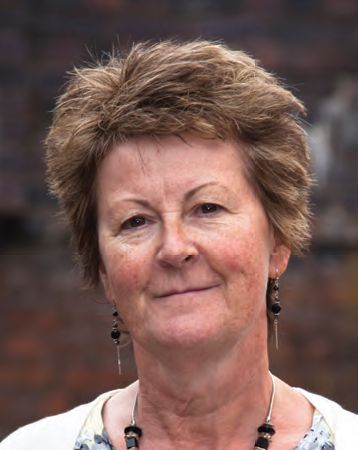
I started off looking at motor outputs from spinal cord but then became more interested in sensory inputs, especially pain and nociceptive inputs. I am interested in translating an understanding of pain processing into clinical therapies for chronic pain. For example, there is a huge unmet clinical need for neuropathic pain.
I joined The Society in 1987; I would have been a post-doctoral researcher at that time. I joined as soon as I possibly could because I wanted to be part of the UK Physiology community and the best way to do that was to become a member. The criteria for membership were rather strict in those days – much tougher than now!
I first came onto Council in the mid 1990s. I sat at different times on the Education Committee, the International Committee and then I chaired the Grants Committee. Recently I got drawn back in and I’m now the Honorary Treasurer! But even when I was not a member of Council, I was still very much involved in The Society in one way or another.
I think there is an under-representation of women in science, especially at senior levels and on national committees that have influence. But if there’s not enough representation, perhaps it’s because not enough women are putting themselves forward. So then, you think, well, I should do that myself instead of leaving it to others.
When the opportunity came to contribute to The Society’s activities in a way that was new for me, that was attractive. I’ve had to learn quickly a lot about what it means to be the Honorary Treasurer but it has been interesting too. As Honorary Treasurer, I can work to support the membership and its activities. I think Physiology is under threat in terms of its perceived relevance to society. It’s obvious to us why it is so important, but it’s not necessarily obvious to a broader audience. So I like to support work in that area too.
Anne King is The Society’s Honorary Treasurer and sits on the Executive Committee, Finance Committee (as chair), Publications Committee and History and Archives Committee.
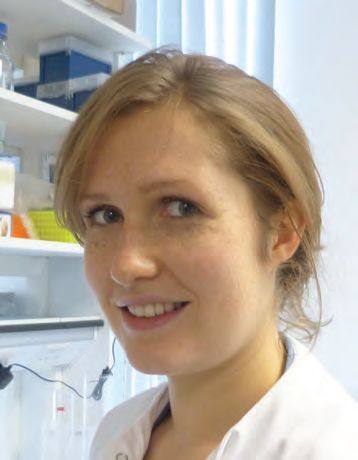
My PhD project explores molecular changes that occur in heart disease, with a focus on beta adrenergic receptors and caveolar proteins, under the supervision of Sarah Calaghan and Ed White. I also teach anatomy to undergraduates.
I joined The Society just last year. Most people in my lab attend the conferences and say that they’re a good opportunity. My post-doc, David MacDougall, said that it was really worthwhile joining, and there is another PhD student in my lab who actually came to Leeds because he met people in the Leeds group at a Society meeting.
This is the first active involvement I’ve had with The Society, though I presented a poster at the IUPS conference in July [hosted by PhySoc]. An international conference is pretty good going for starters! I’m lucky that it was hosted by PhySoc in the UK.
As an undergraduate I was the student representative for my course and I enjoyed that role, so I applied to be an affiliate representative on Council. I emailed Keith [Siew] and Jamie [McPhee – former affiliate representatives on Council] to ask how they found the role and they both said it was very rewarding being involved and promoting early-career scientists. I didn’t know them – they were just given as contacts in The Society’s email newsletter.
The first Council meeting was quite a lot to take on board. I didn’t realise how much goes on behind the scenes and how much work was involved in running Society activities; how much you have to put in to give out benefits to Members.
Ruth Norman is an Affiliate Representative and sits on the Meetings Committee
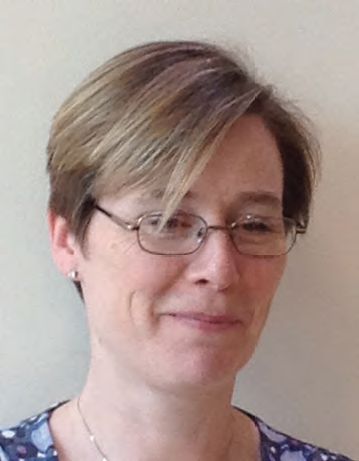
I research mechanisms of chronic pain and taste disturbances in disease states. I originally trained as a dentist. When I intercalated in neuroscience at the University of Edinburgh, I developed an interest in pain. Many thought it hilarious that a dentist was interested in pain, but it was from exposure to great teaching that my interest developed, rather than from anything I inflicted on a patient!
I became interested in taste disturbances much later on as a result of teaching dental students at Bristol University, and wine tastings with friend and psychiatrist, Jan Melichar.
I attended my first PhySoc meeting in London under the Young Physiologist Guest Scheme at the suggestion of my (now) husband [Dave Bates]. I first presented at a Bristol meeting, where I met many of the people with whom I now collaborate. Both meetings were in 1992.
I didn’t actually join The Society until I moved to a faculty position in Bristol in 1999, when Bridget Lumb mentioned she was surprised I wasn’t a Member. I immediately joined and became convenor for the Somatosensory SIG. When Society Reps were introduced, I fulfilled that role at Bristol and did so until I moved to Nottingham this summer. Being a rep was a really good way to get to know both The Society and the university – you find physiologists in the most unexpected places when you’re a rep.
I stood for Council because I want to help make sure that physiology remains a vibrant community with strong representation at local, national and international levels.
Lucy Donaldson sits on the Policy Committee
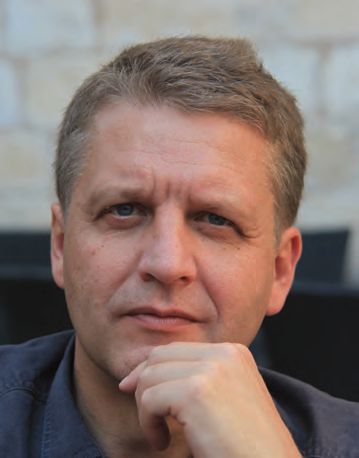
I am Professor of Neurophysiology in the Centre for Integrative Physiology at The University of Edinburgh. My research interests focus on the basic mechanisms by which neuropeptides affect the functional properties of neuronal networks, and exactly how they can have apparently specific behavioural effects.
I obtained my PhD in neurobiology from the University of Leipzig, Germany, and pursued postdoctoral studies at Wake Forest University in Winston-Salem, North Carolina, USA. I came to Edinburgh in 1995 and my association with The Society began when I became an Associated Member in 1995 and a full Member in 1998.
I was convenor for the Special Interest Group ‘Neuroendocrinology’ for The Society from 2005 till 2009. Since 2009 I have been Theme Leader for Endocrinology and Metabolism.
Over the years I have regularly assessed symposium proposals and abstracts, chaired sessions and evaluated posters at meeting of The Society.
I have organised several symposia, including: a symposium entitled ‘Dendritic neuropeptide release’ at Life Science in Glasgow (2007); with Prof Alison Douglas a Physiological Society International Focus Meeting ‘Perinatal physiology: from uterus to brain’ in Edinburgh (2007); and a Special Physiological Society Symposium to honour the lifetime achievements of Professor John Russell (Festschrift) in Edinburgh (2009).
In 2013 I was elected as a Trustee to support The Society in this role.
Mike Ludwig sits on the Meetings Committee
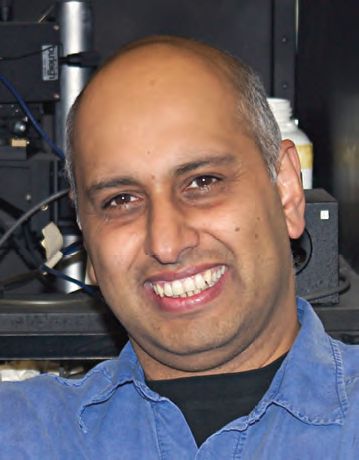
I’ve long been interested in the mechanisms of action and role of peripheral chemoreceptors. This interest, which now encompasses glucose sensing and obstructive sleep apnoea, in addition to hypoxic chemotransduction, arose from mentoring and teaching by Bob Torrance, Piers Nye and Mark Hanson, who all imparted their passion for the topic to me.
The interest is now retained by the stubborn refusal of the carotid body to reveal its secrets easily and also by the great friendships I have made over my career with others who share the same enthusiasm.
I gave my first oral presentation to The Society in 1983 (was that really 30 years ago?), and joined as a full Member in 1991 when I became a lecturer in a physiology department – where it was just a natural thing to do. I still recall the anxiety I felt when it was revealed that a single Society Member could effectively veto an application to join if they deemed you ‘not worthy’! Luckily, I passed the test and those old ‘dining society’ rules have now been removed.
Since then, I have had the privilege of being the Meetings Secretary for The Society, helping to establish the annual meeting format and a greater international flavour to our UK Meetings.
I have re-joined Council to work with the Education and Outreach Committee where I feel we have a lot to do to keep physiology and our Society remaining vital to the next generation of life scientists in schools and universities.
Prem Kumar sits on the Education and Outreach Committee
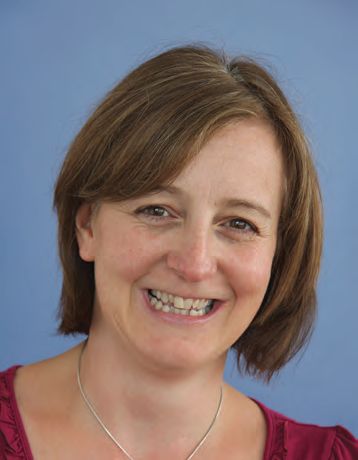
My research focuses on the mechanisms controlling human parturition and reasons why women deliver their babies prematurely. My group aims to identify drugs that can stop premature labour when it happens, with a particular interest in potassium channel modulators that can target the uterus.
The Physiology Society Main Meeting was the first conference I ever went to – the meetings provided me with a fabulous opportunity to learn about many different systems. I didn’t join The Society until 1996, after my first post-doc, when I was encouraged to do so by Lucilla Poston, Jeremy Ward and Sarah Hall, who were all Members at the time.
Since 1996, I have presented whenever I can at meetings and encouraged all my students and staff to join The Society as it provides tremendous networking opportunities as well as providing a close network community for scientists. This is really important to me, being embedded in a medical environment. I have over the years taken on ad hoc roles at Society meetings, such as poster judging and chairing sessions. Iain Greenwood persuaded to be co-convenor of the Smooth Muscle Interest Group [2007-2010], an experience which gave me the confidence to take on other roles.
I am glad to be involved more now as a Trustee and member of the Council. It is fascinating to understand how the Society functions, and to be able to be support the Society in this way. I am particularly looking forward to be being involved in more Outreach and Education activities.
Rachel Tribe sits on the Membership and Grants Committee and the Education and Outreach Committee
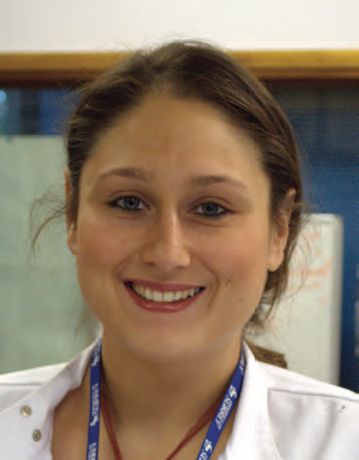
My post-doc is focused on the cardiac pathology atrial fibrillation (AF). My focus is to investigate the mismanagement of electrical activity during AF.
I joined The Society when I first started my PhD back in 2009 and was told that it would be worth being part of, if just for the travel grants. It was not until Physiology 2012 [Edinburgh] that I really saw the benefit of The Society. No longer was it about the funding, but the science, the networking, the experiences, and the mentoring and advice offered by senior physiologists.
In 2012, I entered and won the I’m a Scientist, Get Me Out of Here event, which I did because I feel that science should not be exclusively for scientists, but should engage the public. In Edinburgh I met the previous affiliate representative, Keith Siew, and through him I learnt more about what The Society was doing in this area. So, I decided to apply for Keith’s position on Council when he stepped down. I am now also part of the Education and Outreach Committee, and the Policy Committee. Both I find important and enjoyable, and of real value to my personal development and career.
I am so thankful that I became a Member of The Society: the people you meet, the science you discover, the networking and the sense of community you gain. As an affiliate representative I want to help other early-career physiologists discover The Society.
Fiona Hatch is an Affiliate Representative and sits on the Education and Outreach Committee and the Policy Committee
